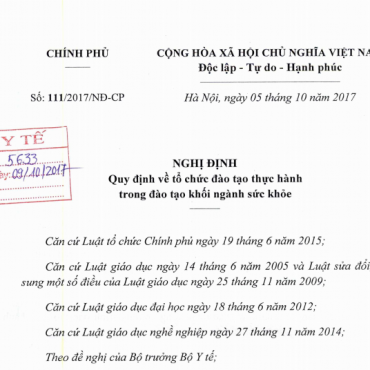Contact Admission
International Collaboration
One in 10 People Who Had Omicron Got Long COVID: Study
About 10% of people infected with Omicron reported having long COVID, a lower percentage than estimated for people infected with earlier strains of the coronavirus, says a study published in The Journal of the American Medical Association.
The research team looked at data from 8,646 adults infected with COVID-19 at different times of the pandemic and 1,118 who did not have COVID.
"Based on a subset of 2,231 patients in this analysis who had a first COVID-19 infection on or after Dec. 1, 2021, when the Omicron variant was circulating, about 10% experienced long-term symptoms or long COVID after six months," the National Institutes of Health said in a news release.
People who were unvaccinated or got COVID before Omicron were more likely to have long COVID and had more severe cases, the NIH said.
Previous studies have come up with higher figures than 10% for people who have long COVID.
For instance, in June 2022 the CDC said 1 in 5 Americans who had COVID reported having long COVID. And a University of Oxford study published in September 2021 found more than a third of patients had long COVID symptoms.
The scientists in the most recent study identified 12 symptoms that distinguished people who did and didn't have COVID. The scientists developed a scoring system for the symptoms to set a threshold to identify people who had long COVID, the NIH said.
The symptoms were fatigue, brain fog, dizziness, stomach upset, heart palpitations, issues with sexual desire or capacity, loss of smell or taste, thirst, chronic coughing, chest pain, and abnormal movements. Another symptom was post-exertional malaise, or worse symptoms after mental or physical exertion.
Scientists still have many questions about long COVID, such as how many people get it and why some people get it and others don't.
The study was coordinated through the NIH's RECOVER (Researching COVID to Enhance Recovery) initiative, which aims to find out how to define, detect, and treat long COVID.
"The researchers hope this study is the next step toward potential treatments for long COVID, which affects the health and wellbeing of millions of Americans," the NIH said.
JAMA Network: "Development of a Definition of Postacute Sequelae of SARS-CoV-2 Infection."
National Institutes of Health: "Large study provides scientists with deeper insight into long COVID symptoms."
CDC: "Nearly One in Five American Adults Who Have Had COVID-19 Still Have 'Long COVID.'"
PLOS Medicine: "Incidence, co-occurrence, and evolution of long-COVID features: A 6-month retrospective cohort study of 273,618 survivors of COVID-19."
The content from website www.medscape.com
Link access, Here
Other library
- Physical Medicine Academy Issues Guidance on Long COVID Neurologic Symptoms ( 09:58 - 19/05/2023 )
- Breakthrough' Study: Diabetes Drug Helps Prevent Long COVID ( 08:55 - 15/03/2023 )
- BCG vaccine (thuốc chủng ngừa bệnh lao) & SARS-CoV 2 (covid-19) infection ( 10:08 - 27/10/2022 )
- Đại dịch COVID-19 đã kết thúc? ( 09:11 - 22/09/2022 )
- Dị hình giới tính ở COVID-19: Ý nghĩa tiềm năng về lâm sàng và sức khỏe cộng đồng ( 09:22 - 19/03/2022 )
- COVID-19 Update ( 21:00 - 06/03/2022 )
- Một người có thể tái mắc Covid-19 bao nhiêu lần ?? / kèm 6 tài liệu mới ... do "waning immunity", xảy ra ≥6 tháng sau chủng ngừa hay mắc nhiễm .. ( 20:25 - 06/03/2022 )
- T-cells from common colds can provide protection against COVID-19 - study ( 08:25 - 11/01/2022 )
- Coronavirus Can Spread to Heart, Brain Days After Infection ( 07:56 - 30/12/2021 )
- Cập nhật tình hình đại dịch Covid-19 toàn cầu, chủ nhật 19-12-2021 ( 08:07 - 20/12/2021 )
















